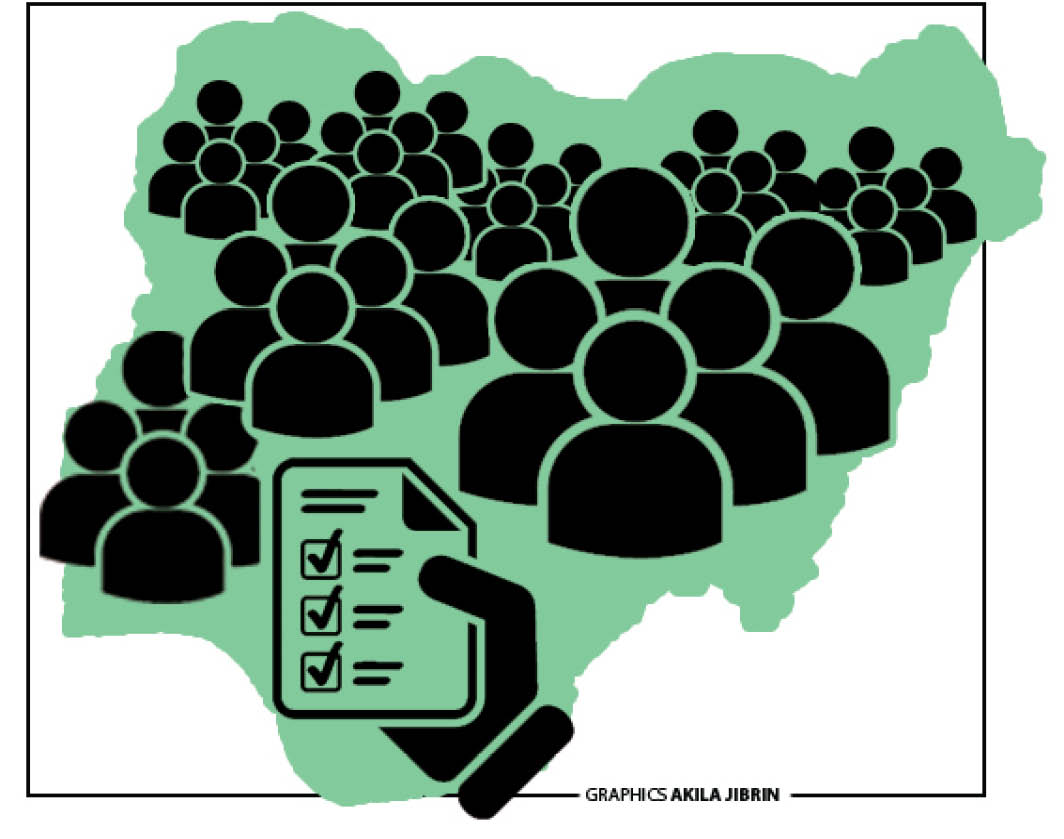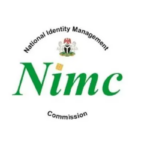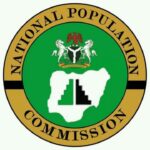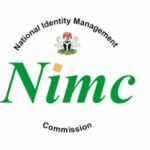Sometime in 2018, in Yauri town of Kebbi State, an argument ensued amongst a group of friends. The issue of contestation was whether there were more grains in a 100kg bag of millet than there were Nigerians. The argument heated up so much that it was decided the best way to resolve it was to do a manual count of the grains.
The men went about this task meticulously, and month after month, they diligently and methodically counted grain after grain. Soon, the exercise drew a healthy dose of local and international media coverage. Amidst the excitement, the Yauri Millet Counters concluded that just under 12 million grains are in a 100kg bag of millet, far less than Nigeria’s estimated population.
A remarkable feat. In doing this, these men succeeded at something Nigeria, or what would later become known as Nigeria, has been failing for 157 years.
Since 1866, when the first population census of Lagos was carried out, there have been several attempts to conduct a census of the populace. That first one was restricted to the colony of Lagos, as were the ones in 1871, 1881, and 1901. After the amalgamation of Lagos and Southern Nigeria, the 1911 census covered the entirety of the southern region.
Student abduction in schools, threat to education – CAN
NBTE boss calls for national skills fund to empower informal sectors
It was not until 1921 that the first nationwide census was done. If enjoy is the right word to use, all of these enjoyed minimal success. The reasons were limited colonial manpower, inadequate training of the census takers and unfavourable public perception toward the census. This disapproving attitude carried into the 1953 census, when many Nigerians, fearing that the exercise was a ploy to tax them and spy on their families and possessions, fled their homes to avoid being counted.
Nevertheless, the government announced its results, which were used to allocate resources and parliamentary seats to the various regions. According to the figures, the North, with a higher population, got a larger share of the seats in parliament. For the southern region, this became an issue of contestation and accusations that the colonial government was working the system to favour the North. Thus began the politicisation of census exercises in the country.
By the 1962 census, the first under in an independent Nigeria, politicians took it as war. They went out of their ways to influence the figures. Preliminary results showed that the North’s population had risen by some 30 per cent since the last count, while in some parts of the East, the figures rose by some 70 per cent in general and 200 per cent in some parts. Protests followed, and the final results were never announced. A recount was ordered in 1963, the results of which were contested at the Supreme Court. It was that serious.
Even after the census lost its importance in allocating parliamentary seats, they have continued to be a lightning rod for controversy. The last one, in 2006, was chaotic, badly managed and, as expected, contentious.
While our census history has been fraught with tensions, chaos and mismanagement (the Nigerian Population Commission (NPC) plans to blow away N800 billion for its next census), our history of keeping records of births and deaths, where this exists, has been even more anarchic. Birth and death registers are standard practices worldwide, but here, they are a side hustle for civil servants to extort money from Nigerians when they need evidence of these records.
This is why the idea of the Civil Registration and Vital Statistics System and Geospatial Data Repository, which the NPC launched this week, seems like a good idea. The lack of diligent record keeping on births and deaths has meant our population count and, by extension, strategic planning for development, infrastructure, and allocation are, at best, arbitrary.
For instance, INEC has a total of 93.4 million registered voters in its database. It has no record and no way of knowing how many of these voters have died. Yet, in planning for elections, it must plan and budget for this number of voters. In the February 2023 presidential election, only 25 million voters turned out to vote. Aside from voter apathy, it is possible that a good number of these voters didn’t show up because they are dead, and the resources expended in planning for them to vote could have been saved.
That is why having an updated population figure and a functional and effective CRVS system in place is crucial. The NPC has assured that it will be using “modern, state-of-the-art technology” for this purpose. The commission’s chairman, Nasiru Kwarra, had told journalists at a briefing that it is promoting “the Vital Reg System as a completely electronic system that digitalises all civil registrations such as birth registration, stillbirth registration, birth attestation, adoption, marriage notification, divorce notification, migration and death.”
While that is commendable, we must remember that its sister government agency, the INEC, made the same or similar promises ahead of the 2023 elections. Like the NPC, it, too, cornered a chunky budget (N355 billion, with another N18 billion supplementary budget) for this purpose. We all know how that panned out in the end with the “game-changing technology,” which claimed a significant amount of the budget, failing to function on the one day you need it to function.
Another agency, the National Identity Management Commission (NIMC) has for years been making promises to harmonise data and create a unified database of Nigerians. With billions expended on this exercise, that, too, has proven to be a charade of sorts.
For instance, I re-enlisted for the National ID card in 2016, eight years ago now. I still have not received my national ID card because, apparently, NIMC has not processed it. The last time I enquired, I was told that NIMC was processing those who registered in 2013, so my 2016 cohorts and I still have years of waiting ahead of us. Despite the years and the billions poured into this, it is safe to say that the process has been chaotic. One only needs to look at the management of the recent NIN registration fiasco.
The chaos is often deliberate because some staff of the agencies profit from it. During a recent visit to the NIMC Abuja office, the commission’s Acting Director-General, Mrs Abisoye Coker-Odusote, warned that extortionists within the commission’s ranks who game the system for profit would be dealt with.
As mentioned, the NPC has budgeted N800 billion for the national census. After spending N200 billion from that budget, which the House of Reps is probing at the moment, it is looking increasingly likely that the commission is still unprepared to hold a census this year. This exercise was supposed to have happened in 2016 and in 2022 before it was postponed to March 2023. It is November. That thing is not happening this year, for sure.
Both of these agencies have badly managed the process and a tremendous amount of resources and what has the country got to show for it?
If the Babylonians from 3800 years BCE could conduct a successful census, as evidenced by discovered clay tablets, it begs the question as to why in 2023, with nearly a 100 billion naira budget and “state-of-the-art technology,” Nigeria is all tied up in knots about its own exercise. This is even more frustrating with the lived and acquired experience to draw from.
However, if the NPC needs further inspiration on how to get accurate figures about things, they should look to the Yauri Millet Counters and learn that some impossible tasks are possible with commitment and diligence.

 Join Daily Trust WhatsApp Community For Quick Access To News and Happenings Around You.
Join Daily Trust WhatsApp Community For Quick Access To News and Happenings Around You.


